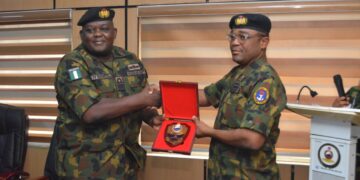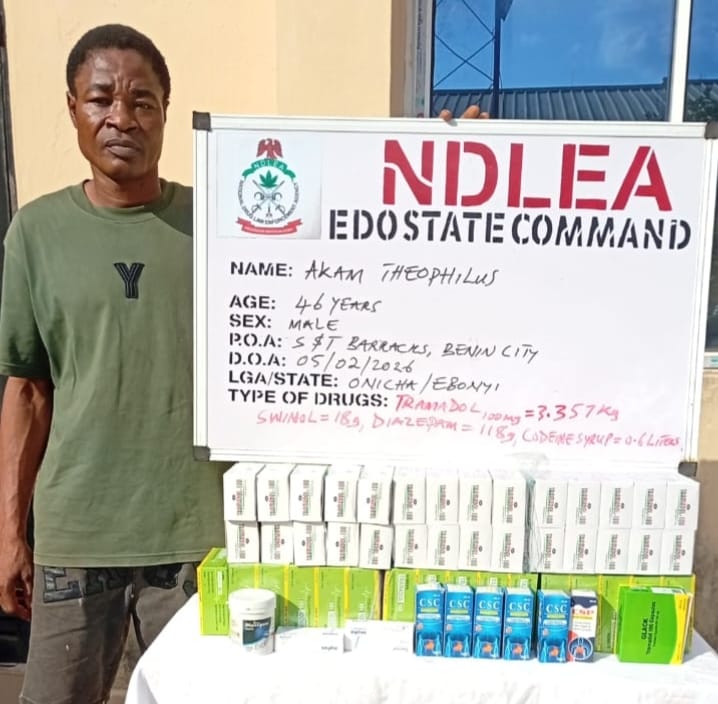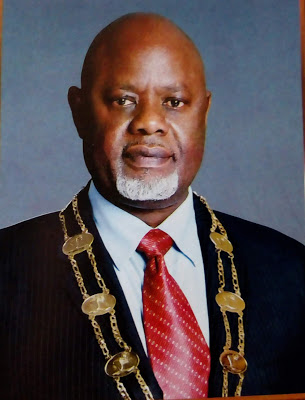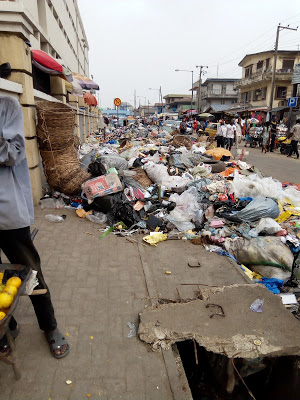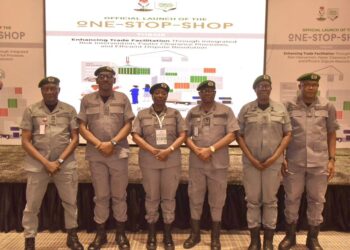A shipowner and Chief Executive Officer of Starzs Group, Engr. Greg Ogbeifun, has called on the Federal Government to consider a review of its tax policies as well to begin a revitalisation of the steel industry if the proposed ban on importation of certain categories of vessels for caboatge trade is to be effective.
Ogbeifun, who is also an immediate past president of the Ship Owners Association of Nigeria (SOAN), said in an interview that: “Our tax policies should be reviewed. Just the same thing that is dogging emergence of another national fleet. Our tax policies, our tax incentives have to be looked at, to make it competitive to build boats in-country than to build outside the country.
“The steel industry has to be active. You may initially start by importing steel. If you don’t also look at that sector in-country to become functional, then, you are weakening the implementability of this very nice
policy. So, it is beyond just looking at boats.”
policy. So, it is beyond just looking at boats.”
Ogbeifun had praised the Federal Government’s plan through the Nigerian Maritime Administration and Safety Agency (NIMASA) to gradually stop the importation of foreign-built vessels into the country, calling it “the boldest policy statement that has been made in the industry with respect to genuinely wanting to grow the capacity of ship building industry.”
He, however, called on all stakeholders, and particularly the government agencies, to ensure their own contributions at making the plan workable for the benefit of the industry and the nation’s economy.
“But we have to understand that it behoves on every one of us to make that happen. Primarily, it behoves on the people who acquire ships from abroad, to see this as a positive step towards investing in this country, for this country, for the people of this country, for our economy.
“And when you talk about this, everybody want to think of the shipowners. Who are the shipowners? You can think of a company like Starzs, a company like Marine Platform and many others. But don’t forget that NIMASA is a shipowner, NPA is a shipowner.
“So, the shipowner you are talking about is both public and private. Therefore, we have to come together to understand that this policy that the government has come out with, laudable as it is, will affect even the
government, because the government through the NPA, is one of the biggest buyers or builders of ship in the country.
government, because the government through the NPA, is one of the biggest buyers or builders of ship in the country.
“Government cannot come out with that policy and tomorrow you hear that NIMASA is now ordering for security patrol vessels from Damen Shipyard or wherever, or NPA, who as you know, a few months ago brought in new tugboats built by Damen, will also go back to Damen to say build us a ship from abroad
when they have made such a policy statement.
when they have made such a policy statement.
“When I read it, I said this is great, because initially everybody will look at the IOCs who are the main employers of vessels, particularly upstream and thinking what are the Total, Shell, the Chevrons of this world “what are they going to do now that this policy has come out?” But in the same vein, what is NPA, NIMASA going to do now?”
Speaking on the manpower needs to manage the in-country shipyards, Ogbeifun said it would be encouraging to start off with foreign professionals, while it would also be an opportunity to train local manpower to gradually meet the industry needs.
He said: “The few ship repair companies in-country has some level of skilled labour. But the human resources to build ships, we can start with international skilled personal and gradually build in-country capability of manpower. So, that is not a challenge.
“Niger Dock is a case in question. When Niger Dock was built in the ‘80s and commissioned, the Polish people were the real skilled ship repairers who operated that yard. Today, you can agree with me that a large number of the workforce there are Nigerians.”
Acknowledging the maritime infrastructure, the ship building yard, as the biggest single element that is crucial to the actualisation of the policy, the shipping industrialist called attention on the need to revive the Continental Shipyard, which is government-owned.
Speaking on the reason the West Atlantic Shipyard migrated from ship building to ship repairs, Ogbeifun said the company realised that it was 40 per cent more expensive to build aluminium crew boats, for which they were reputed, in-country than to import them.
“West Atlantic shipyard that started with building aluminium crew boats use to pre-fabricate the components outside the country, bring them to Onne, and assemble them. They were launching built in-country crew boats, but they had to stop after a while because it was 40 per cent more expensive to build
those boats in-country in that method than to bring them from outside the country. So, they migrated from building boats to repairing ships. That has to be revisited,” he said.
those boats in-country in that method than to bring them from outside the country. So, they migrated from building boats to repairing ships. That has to be revisited,” he said.
Ogbeifun is confident that this policy marks a new dawn for actual promotion of shipyard operations in Nigeria.











